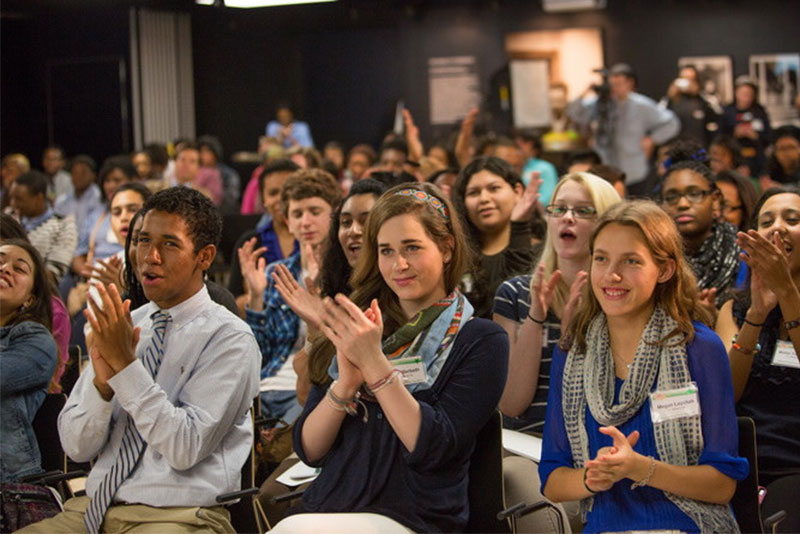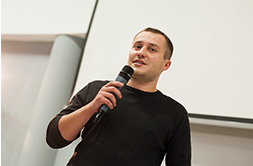
It is said the fear of public speaking is one of the most intense forms of social anxiety that anyone might suffer. Some people would rather endure bodily harm than speak in front of a group of people. Why is this, why is public speaking so terrifying and why does it not come naturally to more people? Instructor Patrice Tabor hopes to answer those questions and more in her upcoming class, Introduction to Public Speaking. “Fear and nervousness about speaking in public is perfectly normal,” says Tabor. “By learning and practicing new skills, the fear can be managed and even transformed into new positive energy.” 
Though she’s made it her vocation, the truth of the matter is public speaking is not a skill that came naturally to Tabor. “I was terribly shy and lacked confidence in my speaking ability,” she says. “I wanted to change careers which motivated me to learn new skills. I joined Toastmasters which helped me develop public speaking skills and provided a very supportive environment in which to grow.”
Toastmasters is an international society established for the express purpose of helping people improve their confidence at public speaking. Founded in 1924 by Ralph Smedly, the organization eventually grew to assist over four million people to become better public speakers, with 352, 000 members in 141 countries.
Tabor’s introduction to Toastmasters was a revelatory experience. “My best friend joined Toastmasters and invited me to come as a guest to her club meeting. I was a lab tech that needed to develop public speaking skills in order to make a career change,” she recalls. “I quickly saw the value of the Toastmasters program and felt that it was a safe and supportive environment to learn new skills.”
Being a confident public speaker is vital to many tasks in life, both personal and professional, but the fear of public speaking is a powerful form of social anxiety that engages our primitive fight or flight reflex. Causes for Glossophobia, or the fear of public speaking, range from past traumatic experiences to genetics—nature or nurture or both. All professional speakers agree that one should not seek to conquer their feelings of anxiety, but to find a means of channeling it into your speech.
Tabor says the first step to conquering a fear of public speaking is in taking charge of your subject. “The most important step is to believe in yourself and your message. By focusing externally on the value you bring to your audience, helps you to focus less on your nervousness. Relaxation techniques and positive affirmations are tremendously helpful also.”
 Having lived with the discomfort that comes from a fear of public speaking, Tabor shares a great deal of empathy with her students. “I am enthusiastic about helping others who are shy and nervous to develop new skills,” she says. “Learning public speaking skills opens you up to new career possibilities and helps you to become a more confident communicator overall. It is most satisfying to watch the student's
Having lived with the discomfort that comes from a fear of public speaking, Tabor shares a great deal of empathy with her students. “I am enthusiastic about helping others who are shy and nervous to develop new skills,” she says. “Learning public speaking skills opens you up to new career possibilities and helps you to become a more confident communicator overall. It is most satisfying to watch the student's
Tabor is confident students joining her for Introduction to Public Speaking will take away three vital things from her class, “1. To not let fear get in the way of pursuing your dreams 2. Public speaking skills can be learned. 3. With practice and training, anyone can become confident speaking in front of an audience.”
Learn more about Introduction to Public Speaking.
Photo credits:
David Speicher
Matt Harasymczuk
Mentor USA